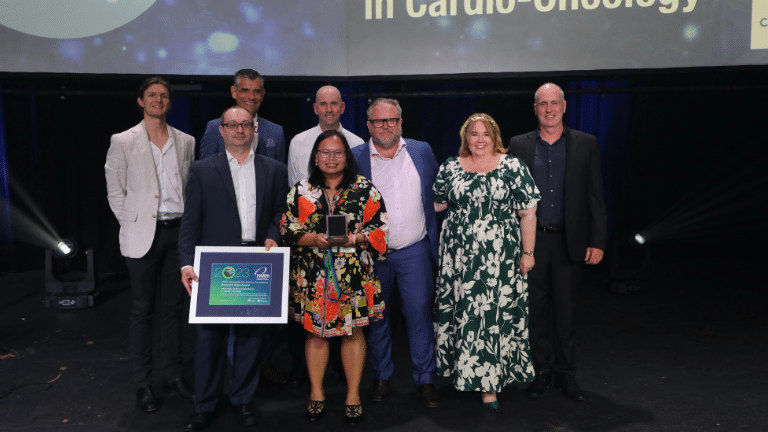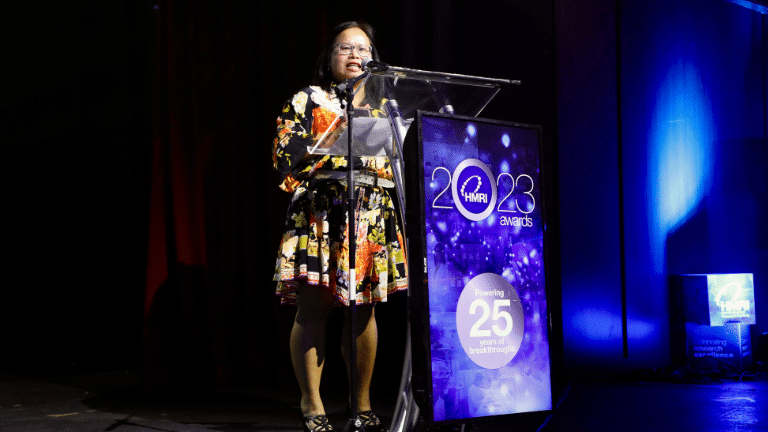
Australia’s first dedicated Cardio-Oncology team, headed up by Professor Aaron Sverdlov and Professor Doan Ngo, has been named the ultimate dream team at the 2023 HMRI Awards.

With 25 percent of cancer survivors dying from cardiac disease within seven years of receiving cancer treatment, the Cardio-Oncology team’s mission is to find ways to beat cancer that don’t damage the heart. Program Co-Director Professor Aaron Sverdlov says,
“Most cancer patients are unaware of the potentially negative effects of cancer treatment on the heart. “This translates to a lack of care for risk factors that may be implicated in the development of heart disease,” he says.
Established in 2018, the Cardio-Oncology service has received over 400 individual patient referrals with over 1600 patients visiting it since its inception. In 2021, the team added a nurse-led cardiovascular risk assessment and that has had 80 patient referrals and over 200 patient visits. Professor Sverdlov says, “We have found that patients in our program had a lot less discontinuations and interruptions to cancer treatment due to heart problems and had much better adherence to recommended protective treatments.”
The next step for the Cardio-Oncology team is to launch a clinical trial for a drug that they’ve discovered. It’s estimated that, if successful, this drug could be used for breast cancer patients and has a potential market value of over US$1.7 billion. Professor Sverdlov says that the team’s success comes down to its multidisciplinary approach that spans discovery science right through to clinical application.
“Our team includes clinicians and basic scientists from cardiovascular and cancer fields, ECRs, MCRs, PhD students, Clinical Trainees, Pharmacists and Nurses and is supported by consumers, industry and international professional societies. “Our program incorporates basic mechanistic discovery studies looking at mechanisms of cardiotoxicity, drug discovery studies, translational human research, clinical research and clinical inpatient and outpatient service delivery,” he said.

HMRI would like to acknowledge the Traditional Custodians of the land on which we work and live, the Awabakal and Worimi peoples, and pay our respects to Elders past and present. We recognise and respect their cultural heritage and beliefs and their continued connection to their land.

Hunter Medical Research Institute
We’re taking healthy further.
Locked Bag 1000
New Lambton
NSW, Australia, 2305



This site is protected by reCAPTCHA and the Google Privacy Policy and Terms of Service apply.
Copyright © 2024 Hunter Medical Research Institute | ABN: 27 081 436 919
Site by Marlin Communications
